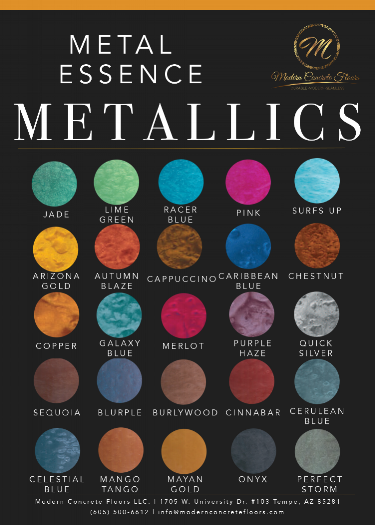Addressing pricing discrepancies within the industry
/If you are in the market for a concrete floor or epoxy coating, you may have already searched around the internet for various contractors that might be a fit for the work you are looking to have done. Your next step most likely involves probing the contractor for a price to do your work. You will find that some contractors’ prices vary drastically from another’s; seemingly, for an identical product.
The old adage, “you get what you pay for”, rings true in the world of concrete floors and epoxy coatings. Go with a ‘cheaper-than-the-rest’ bidder, and you are bound to find issues with the brand new floor you bought; whether it be during the installation process or within a year or less after installation. Anyone with a significantly lower bid than other contractors is bound to cut a few corners.
The purpose of this blog is to help potential clients understand what exactly those “cut” corners may consist of. It all starts with the fact that their price is so attractively cheaper than their competitors. These are usually fly-by-night individuals with a fundamental knowledge of how to apply a concrete coating but are only looking to make a quick buck. They might dust out (or water-log) your entire space, ignore vital adjacent finishes that should have been masked off, or engage in improper or sloppy mixing techniques that will prevent your floor from reaching its full chemical hardness; all while smearing product where it doesn’t belong.
OK, let’s say you’ve hired a well-mannered contractor whom have learned from their past mistakes or mishaps (we sure have). The amount a contractor charges you for work they do directly correlates with the amount of time they plan to spend on your project. The first step of specialty flooring is proper preparation procedures. Most specialty flooring contractors these days use diamond-grinding equipment which mechanically abrades the concrete to create an adequate, rough profile for the subsequent flooring to “bite” to. This ensures long-term performance by adhering to the substrate. You will find that a cheap bidder does not remove existing (failing) floor coatings or may just profile a less-than adequate percentage of the floor before placing their new flooring. This will lead to adhesion failures and your floor will start chipping up in no-time. There are some contractors that will even resort to a mere pressure washing before proceeding with their installation (run from these guys, they wasted all of your time and money).
So, we’ve managed to hurdle through the obstacles thus far and your contractor seems to be doing a great job and it’s come time to install the flooring- no red flags so far. If you have hired the cheapest bidder for less than what it would cost his/her competition to do the work alone, there has to be somewhere they are saving the cost difference. This will almost always be found in the thickness of application of the flooring being installed. Since the majority of these floors are fluid-applied, the thickness of application can vary greatly. Some products can be “stretched” up to 10-times further than their recommended coverage rate while maintaining a similar or identical appearance to a coating applied at the proper coverage rate. In short, your floor will be a lot thinner than intended, resulting in decreased durability, chemical, abrasion and gouge resistance. A pet’s nail or a rock stuck on the sole of your shoe should NOT scratch through your floor. It would be especially difficult to police this aspect of the installation as most clients did not hire a professional so they, themselves could figure out how much product should be used on their floor. This trust should be formed before the actual sale of the floor.
If you’ve made it this far without any issues from your contractor, it is quite possible that he is working for pennies on the dollar or losing money altogether. This is most likely not the case as nobody likes to work for free. The last cost-saving technique I need warn about in this blog are the use of cheap, low-grade or improper materials. Yes, the type of products you use do make a difference and should be considered when choosing a contractor to do your floor. Be sure to trust that your contractor will have the knowledge to select the correct products for your application and that they will be applied properly. I have seen contractors attempt a “metallic epoxy” floor with solid-colored pigments (improper materials). The floor ended up looking like swirled paint rather than a blended, cohesive marble-like floor. An example of an inferior product would be one you could find at Home Depot or similar chain store. Those products do not compare with an epoxy that may be applied thick enough to hide inconsistencies in your substrate nor do they compare with a high performing polyurethane that would be applied as a final layer on your floor to ensure long-term durability through soil release, abrasion and chemical resistance. It is important to note that even if your contractor seems to be using a credible brand of product, that they might not be using the correct type of product for your application. I have re-done floors for clients who have almost fired me on the spot when they saw me using products with the same label as the previous contractor whose floor I was replacing. I made sure to explain that although they were the same brand of product, they were not exactly the same type of product. It turned out, the previous contractor used a certain polyurethane as a primer (first) coat when this product should have only ever been used as a final coat- the floor did not adhere.
Hopefully these tips can save the next homeowner or businessowner from buying the same floor twice.
